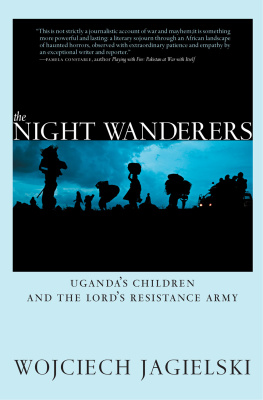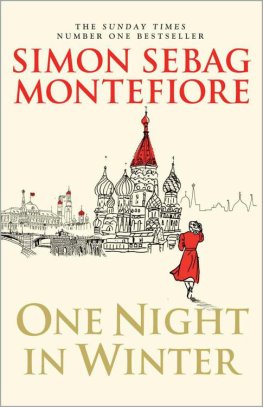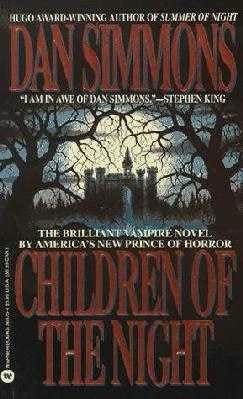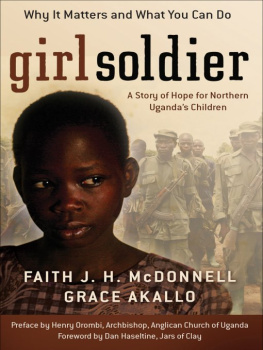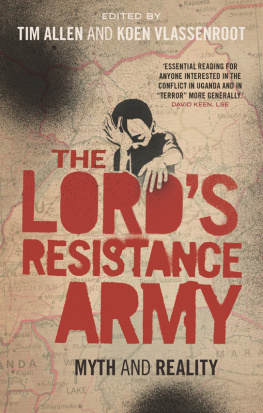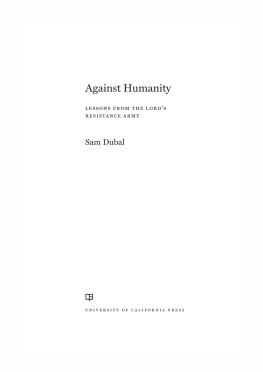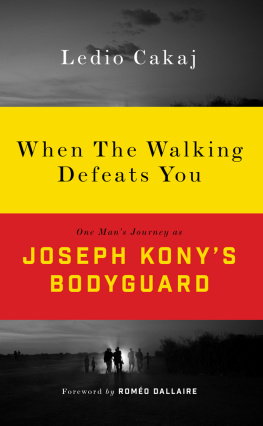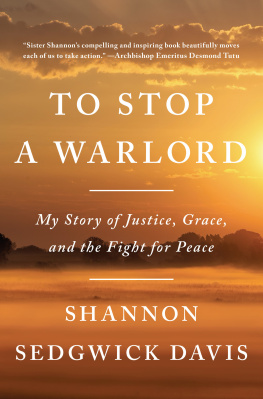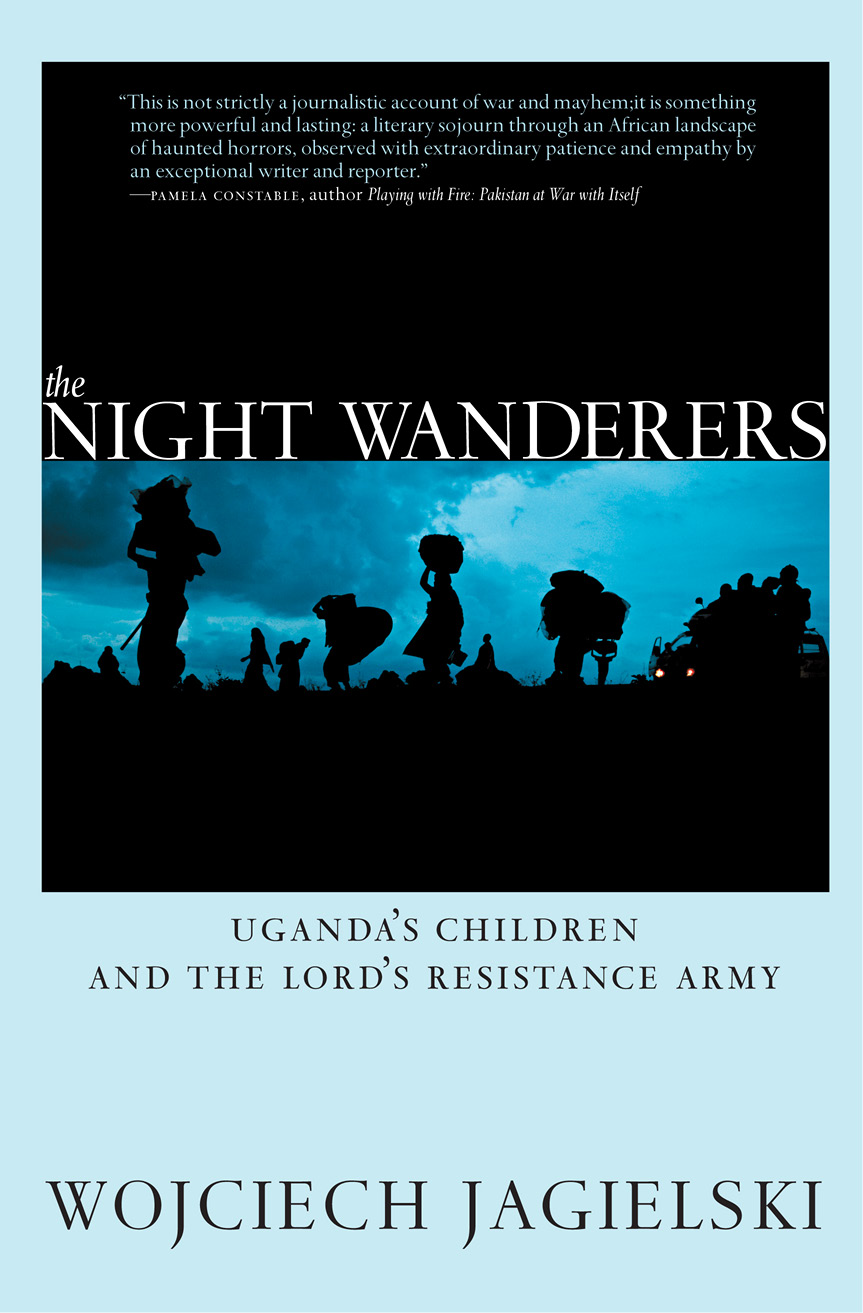
Praise for The Night Wanderers
A disturbing, thought-provoking account of an under-reported and tragic story.
Edward Lucas, international editor, The Economist
Jagielskis moving, beautiful, and winding account of Ugandas sad history of multiple conflicts leaves one mourning the suffering so many have endured and questioning to what extent the current government can provide long term solutions for the generations who survived.
Maria E. Burnett, Senior Researcher, Human Rights Watch Africa Division
This is not strictly a journalistic account of war and mayhem; it is something more powerful and lasting: a literary sojourn through an African landscape of haunted horrors, observed with extraordinary patience and empathy by an exceptional writer and reporter. Wojciech Jagielski paints masterful portraits of messianic guerrilla leaders and mad dictators, but unforgettable ones of stone-faced child rebels who have been forced to kill and maim, and in the process have lost the ability to laugh, cry, or even enjoy ice cream.
Pamela Constable, author of Playing with Fire: Pakistan at War with Itself and Fragments of Grace: My Search for Meaning in the Strife of South Asia
During the twenty years I spent in Uganda I often wondered how Kapuscinski would describe the situations I saw with my eyes in the countrys tormented North. Reading The Night Wanderers , I found the answer. Its pages of great literary beauty carried me to the streets of Gulu and made me meet the formerly abducted children, feel the depths of their pain, and awake inside me images, sounds, and smells so long cherished. Jagielski is a master, not only of story-telling, but also of digging into the intimacy of peoples hearts in tragic situations. By taking their side he makes us understand from a unique angle the complexity of politics in one of Africas most conflictive regions.
Father Carlos Rodriguez Soto, author of Tall Grass: Stories of Suffering and Peace in Northern Uganda
Night Wanderers is a literary masterpiece.
Wiadomosci24 (Poland)
[Like Conrads Heart of Darkness ], Night Wanderers is a story about madness, crime, and fear. It is a story of a victim becoming a perpetrator, about the army of living dead. Jagielski describes a camp for children who served as guerrillas, where they can regain their identity and forget the haunting nightmare.
Rzeczpospolita (Poland)
A wise and important book.... Outstanding journalism and very good literature.
Salon Kulturalny (Poland)
Currently there is no better book about the latest history of Uganda.
Sddeutsche Zeitung (Germany)
the NIGHT WANDERERS
Ugandas Children and the Lords Resistance Army

WOJCIECH JAGIELSKI
Translated by Antonia Lloyd-Jones
Seven Stories Press
NEW YORK
Copyright 2009 by Wydawnictwo W. A. B.
English Translation 2012 by Seven Stories Press
Originally published in Polish by Wydawnictwo W. A. B. under the title Nocni wedrowcy , 2009.
First English-language edition.
All rights reserved. No part of this book may be reproduced, stored in a retrieval system, or transmitted in any form or by any means, including mechanical, electronic, photocopying, recording, or otherwise, without the prior written permission of the publisher.
Seven Stories Press
140 Watts Street
New York, NY 10013
www.sevenstories.com
College professors may order examination copies of Seven Stories Press titles for a free six-month trial period. To order, visit www.sevenstories.com/textbook or send a fax on school letterhead to (212) 226-1411.
Book design by Elizabeth DeLong
Library of Congress Cataloging-in-Publication Data
Jagielski, Wojciech, 1960-
[Nocni wedrowcy. English]
The night wanderers : Ugandas children and the Lords Resistance Army / Wojciech Jagielski ; translated by Antonia Lloyd-Jones. -- A Seven Stories Press 1st ed.
p. cm.
ISBN 978-1-60980-350-6 (hardcover)
1. Children and war--Uganda. 2. Child soldiers--Uganda. 3. Lords Resistance Army. 4. Uganda--Social conditions--21st century. I. Lloyd-Jones, Antonia. II. Title.
HQ784.W3J3413 2011
967.61044--dc23
2011039871
Printed in the United States
9 8 7 6 5 4 3 2 1
For my parents
Contents
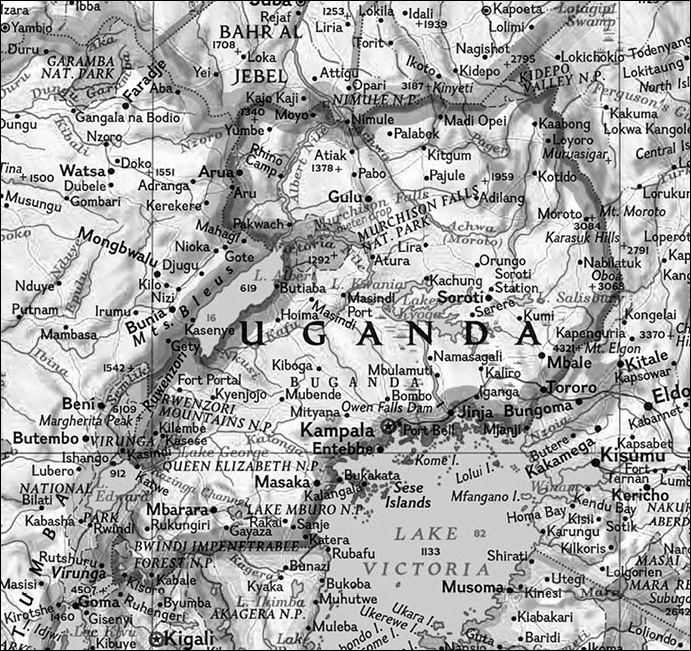
This is a true story, and its setting, the town of Gulu, is a real place. The main characters in the story are also real people, possessed by various spirits, including guerrilla leader Joseph Kony, failed rebel Severino Lukoya, former guerrilla commander Kenneth Banya, the king of the Acholi, their chiefs, the priests, the soldiers, and also the children whom the spirits make into cruel, merciless guerrillas by night.
For the purposes of this narrative, the characters of Nora, Samuel, and Jackson have been created out of several real people.
- - - -
One
In Gulu the day was ending.
The town was hurriedly preparing for sleep, as usual in the rainy season, trying to get everything done in time before the storm erupted, which had been gathering in the darkening sky in swollen, angry clouds, only waiting for dusk to release all the rage accumulated during the scorching day.
Blazing hot, the town was dropping, starting to cool down and go quiet. Now with no regret the weary storekeepers were putting away the goods they hadnt managed to sell in the course of the day. Grimy hired hands from the vulcanization workshop were swearing as they struggled to roll some gigantic tires the size of mill wheels back indoors. Set out on the sidewalk, they blocked the way, forcing passersby to slow down and stop for at least a moment, long enough to plant the seed of temptation to buy some new car wheels.
In the downtown area the offices were closing up. With a rattle and a bang, one after another the shutters were coming down on the stalls and workshops, hidden in the deep shade of arcades running the length of the low-rise buildings on the main street. The innkeepers were starting up their electricity generators, and the noise of them could be heard from all directions.
The imminent cloudburst was already palpable. It was as if heavy drops of warm rain were hanging in the air, ready to fall at any moment onto the dusty red earth and change it into slippery mud the color of blood. The sky was thundering louder and louder, bolder and nearer, and short, bright streaks of lightning were cutting across the clouds as they closed in on the town.
The citizens were vacating the downtown area to get home before the storm and the night. During storms the power supply was usually disconnected. Also, the troops stationed in the town preferred people not to hang around after dusk for no reason. It was easy to mistake them for guerrillas, who on dark, cloudy nights in the rainy season sometimes ventured out of their hiding places in the bush and came all the way into Gulu.
Jackson was waiting for me, as usual, at Franklins Inn on the main street. There he sat, perfectly still, leaning against a stone column. He was a journalist from the local radio station, King FM. Its office was located opposite the Acholi Inn where I was staying. In the afternoons, when he finished work we would meet at this place. I would order the beer, and Jackson would tell me thingsabout the wars, about kings past and present, good and bad, and about sorcerers and the spirits that interfered in peoples lives and influenced their fate. On Saturdays and Sundays we used to come to Franklins to watch soccer matches from the British league on a large television screen hung from the ceiling in the crowded, smoky bar.
Next page
